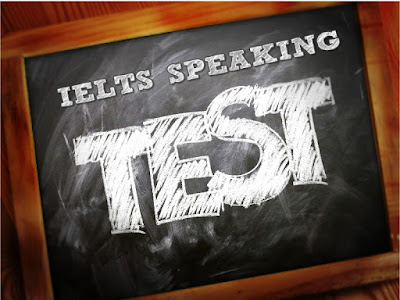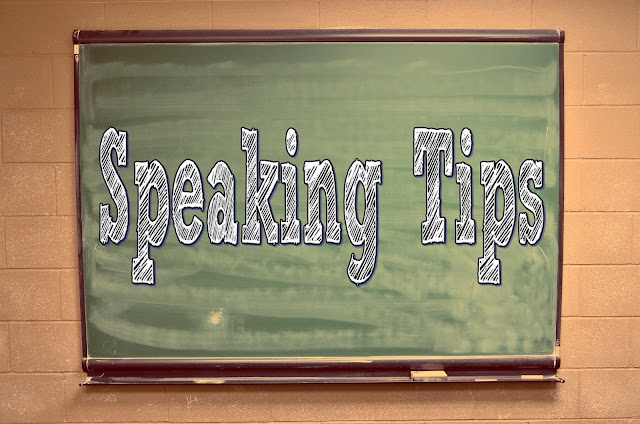In the minds of ESL exam candidates, e ssay writing is one of the most daunting tasks they are required to complete, regardless of the level of the exam, the administering body or the ease with which they themselves use the language. The same applies to students who are asked to write an essay by their teachers at school. In the previous sample essays posted on the blog, the main point I stress is the need to become acquainted with this form of writing (as opposed to writing a letter, review or report, for instance), to get a feel of what authorial voice is and how to organize and progressively express the arguments you wish to make in a coherent manner. Unfortunately, the best way to prepare for exam writing or learn how to write good essays for school is to read as many essays from as many sources as possible, then write as
The English oral examination for the Michigan State University (MSU) certificate at C2 level is a straight-forward affair if you know ahead of time what it is examiners might ask.
This applies to all Speaking components of English-language certificate exams which means that the more varied the types of questions a candidate has knowledge of in advance, the more likely he or she is to stumble upon a similar question on the actual day of the test. Thinking about what answers could be given ahead of time and jotting down some ideas in note form lets candidates worry about finding the right words to use during the exam instead of searching for things to say, arguments to give, examples to support an opinion which they might even not have at that particular moment.
This post therefore is not only geared towards those taking the MSU exam, but for candidates preparing for the IELTS, CPE, ECPE, ESB, LRN, TOEFL, PTE, BULATS, TIE, and similar tests whose list will doubtless increase with time.
Teachers will find this list useful in preparing students by discussing possible vocabulary words they could use to answer particular questions. Even if sitting an exam is not the issue, getting students to talk during every lesson is vital, so these questions could serve as discussion starters.
How to answer description questions
The art of answering questions that ask you to describe an event, person, or thing is one that develops with practice. This list therefore gives you different topics you can work with so you can repeat strategies needed to respond to such questions as fully as possible.
Remember, in order for an examiner to grade you, there needs to be ample material available for them to assess, so your number one priority is to have things to say.
Step 1: The Basics
First start with background information that includes time, place, people involved. This helps you ease into your answer by putting your interlocutor into the picture of things.
This part of your answer shouldn't last long because the question itself wants you to focus on something else.
Step 2: Describe
Next, remember to describe, seeing as that is the point of the question you have been asked. If you are describing an object, mention proportions, color, texture, in short anything that has to do with its appearance before describing its uses.
The same applies to people. Describe what they look like before mentioning qualities they might have like loyalty, patience and the like.
With events, describe details sequentially, mentioning the physical aspects of the event as seen through the senses. For example, if you need to talk about a concert you went to, describe the people who attended or the appearance of the performers, the venue, seating, atmosphere, the smell or sound of things, basically any other detail that a person could sense. To organize your thoughts better, talk about each of these things in the order you noticed them (you arrived at the venue so describe its exterior, then interior. Then you noticed the people there, so describe them. Then the performers came out on stage so mention details pertaining to their appearance.)
Step 3: Close off
Finally, round off your answer by describing whatever cannot be sensed, but cognitively inferred. In other words, describe what people felt, or how you felt. Most often, part of the question itself will have remained unanswered after you've described things as you saw them. It is that final part of the question that you answer at this stage.
Don't worry too much about this stage, especially if the question is part of an exam. You don't have to spend much time on this, as the main reason for the question was for you to describe something. What I mean by describing what is cognitively inferred is that you are going to briefly assess a situation.
For example, if the question says to describe your favorite athlete, after you say a whole bunch of things about them, what still remains to be answered is why that athlete is your favorite. You must therefore talk about "the why" behind your choice.
Another example: if the question mentions "the worst" or "the best", finish off your answer by explaining why in your opinion it was "the worst" or "the best". Assess you choice.
Response Length
For most C2-level exams, answers to questions range from 2-3 minutes depending on the awarding body, so try to practice answering questions by timing yourself, if you are planning on sitting an exam, that is.
Teachers could also aim at getting students to maintain a consistent flow of speech by building up their endurance. Starting from one minute, then raising the bar to two, then three minutes is certain to enable C2-level candidates to pass the oral component of an exam. Improving their grade to beyond the pass mark is a totally separate endeavor, however, and one I'm not going to deal with in this post.
Part 1:
Descriptions
This applies to all Speaking components of English-language certificate exams which means that the more varied the types of questions a candidate has knowledge of in advance, the more likely he or she is to stumble upon a similar question on the actual day of the test. Thinking about what answers could be given ahead of time and jotting down some ideas in note form lets candidates worry about finding the right words to use during the exam instead of searching for things to say, arguments to give, examples to support an opinion which they might even not have at that particular moment.
This post therefore is not only geared towards those taking the MSU exam, but for candidates preparing for the IELTS, CPE, ECPE, ESB, LRN, TOEFL, PTE, BULATS, TIE, and similar tests whose list will doubtless increase with time.
Teachers will find this list useful in preparing students by discussing possible vocabulary words they could use to answer particular questions. Even if sitting an exam is not the issue, getting students to talk during every lesson is vital, so these questions could serve as discussion starters.
How to answer description questions
The art of answering questions that ask you to describe an event, person, or thing is one that develops with practice. This list therefore gives you different topics you can work with so you can repeat strategies needed to respond to such questions as fully as possible.
Remember, in order for an examiner to grade you, there needs to be ample material available for them to assess, so your number one priority is to have things to say.
Step 1: The Basics
First start with background information that includes time, place, people involved. This helps you ease into your answer by putting your interlocutor into the picture of things.
This part of your answer shouldn't last long because the question itself wants you to focus on something else.
Step 2: Describe
Next, remember to describe, seeing as that is the point of the question you have been asked. If you are describing an object, mention proportions, color, texture, in short anything that has to do with its appearance before describing its uses.
The same applies to people. Describe what they look like before mentioning qualities they might have like loyalty, patience and the like.
With events, describe details sequentially, mentioning the physical aspects of the event as seen through the senses. For example, if you need to talk about a concert you went to, describe the people who attended or the appearance of the performers, the venue, seating, atmosphere, the smell or sound of things, basically any other detail that a person could sense. To organize your thoughts better, talk about each of these things in the order you noticed them (you arrived at the venue so describe its exterior, then interior. Then you noticed the people there, so describe them. Then the performers came out on stage so mention details pertaining to their appearance.)
Step 3: Close off
Finally, round off your answer by describing whatever cannot be sensed, but cognitively inferred. In other words, describe what people felt, or how you felt. Most often, part of the question itself will have remained unanswered after you've described things as you saw them. It is that final part of the question that you answer at this stage.
Don't worry too much about this stage, especially if the question is part of an exam. You don't have to spend much time on this, as the main reason for the question was for you to describe something. What I mean by describing what is cognitively inferred is that you are going to briefly assess a situation.
For example, if the question says to describe your favorite athlete, after you say a whole bunch of things about them, what still remains to be answered is why that athlete is your favorite. You must therefore talk about "the why" behind your choice.
Another example: if the question mentions "the worst" or "the best", finish off your answer by explaining why in your opinion it was "the worst" or "the best". Assess you choice.
 |
| Click here for IELTS Speaking tips |
Response Length
For most C2-level exams, answers to questions range from 2-3 minutes depending on the awarding body, so try to practice answering questions by timing yourself, if you are planning on sitting an exam, that is.
Teachers could also aim at getting students to maintain a consistent flow of speech by building up their endurance. Starting from one minute, then raising the bar to two, then three minutes is certain to enable C2-level candidates to pass the oral component of an exam. Improving their grade to beyond the pass mark is a totally separate endeavor, however, and one I'm not going to deal with in this post.
MSU- CELP Speaking
Topics
Descriptions
- Where was the worst place you've ever eaten?
- Can you describe a person who has helped you improve yourself?
- Describe the narrowest escape you've ever had.
- Can you describe a place where as a child you went on holiday?
- Describe something that happened to you that you still remember after many years.
- What was the worst hotel or accommodation you've ever stayed in?
- What makes a movie interesting to you? / Can you describe your favorite film?
- Describe a place where you usually shop for groceries.
- Describe the most irritating experience you've ever had.
- Can you describe a painting or photograph that made an impression on you?
- Describe your favorite toy as a child.
- Could you describe your neighborhood?
- Describe an unusual incident that happened to you in a public place.
- Who has been the best teacher you ever had?
- Describe the funniest story you've ever heard.
- Describe a device or household appliance you use on a daily basis.
- Have you visited a museum or art gallery that made an impression on you?
- Describe ways how you avoid stress. What do you do in order to lead a more relaxed life?
- Describe your worst nightmare or most wonderful dream.
- Describe your favorite room in a house.
- Could you describe a place of interest in the city or town where you live that isn't a major tourist attraction?
- Can you describe a restaurant where you and your family often eat ?
- Describe the ideal house.
- Describe the last time someone or something made you cry either because you felt sad, cheerful or were moved.
- Can you describe a day when the weather made you feel depressed?
- Describe a family event you went to recently.
- Can you describe a place you usually go to when you feel angry or upset.
- Describe a job you had which was the worst ever.
- Not all TV commercials are successful at selling you something. Can you describe the worst TV commercial you’ve ever seen?
- Describe the car you'd like to drive.
- Can you describe a person that you can’t get along with, no matter how hard you’ve tried?
- Could you describe the relative you love the most.
- Describe a place you enjoy shopping at.
- Can you tell me about a chore you hate having to do?
- Could you describe a person who has greatly influenced you?
- Can you tell me about your most loyal friend?
- Describe the best birthday party you've ever been to.
- Tell me about your favorite item of clothing or outfit that you used to wear as a child.
- Describe the most beautiful place you've been to.



